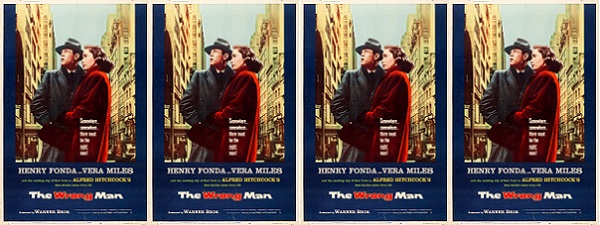A theme running through many Alfred Hitchcock movies has been an innocent party being suspected of a crime. With the movie The Wrong Man (1956), we in the audience enter a clear example of film noir mixed with true crime, drawn as this movie is from the book The True Story of Christopher Emmanuel Balestrero by Maxwell Anderson as well as a magazine article titled A Case of Identity by Herbert Brean as published in Life magazine in June 1953.
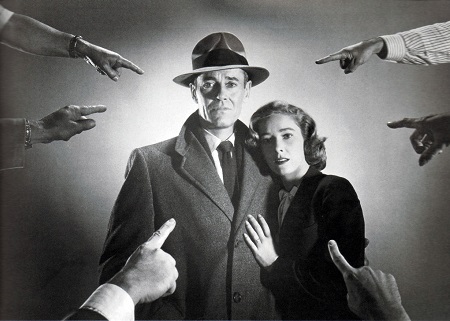
Henry Fonda portrayed Christopher Emmanuel ‘Manny’ Balestrero, the New York City musician who seeks to borrow money from a life insurance policy for his wife, Rose. Rose Balestrero, who needs dental work in the sum of $300, is portrayed by Vera Miles. It is in the attempt to meet this need that Manny Balestrero is accused of robbery.
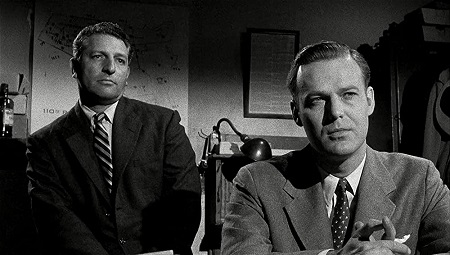
Detective Lieutenant Bowers and Detective Matthews, as portrayed by Harold J. Stone and Charles Cooper, respectively, are the law enforcement officer of a mind to prove Manny Balestrero guilty. Their heavy-handed procedures offer tension to Balestrero’s case, as we in the audience know him to be clearly innocent of the deeds the detectives have a mind to pin on him.
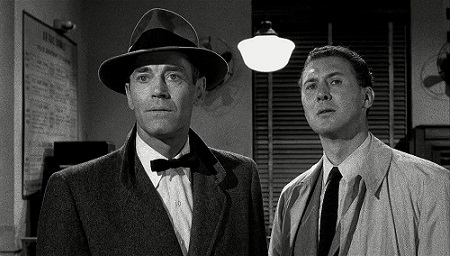
Anthony Quayle portrayed Frank O’Connor, the attorney seeking to aid Manny Balestrero in his defense. With today’s eyes, I struggle with the notion of Balestrero cooperating with many of the activities that police detectives Bowers and Matthews put Manny through in the course of making their case. That these activities were those of a man aiming to cooperate with police make sense, though the notion of presumed guilty until enough baited hooks are fished proved difficult.
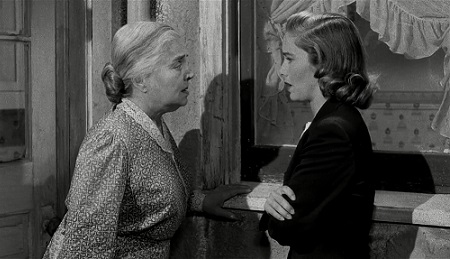
While the case against Manny Balestrero was being made and further put to a jury, the emotional well-being of Rose Balestrero deteriorated. The stress of the proceedings coupled with a sense of guilt for needing the dental work that cast suspicion upon her husband initially lands Rose in the hospital. The storytelling of this demise is told rather factually and dispassionately. I would have liked to see more development of the onset of Rose’s depression in this movie, though I can appreciate the understated presence of it nonetheless.
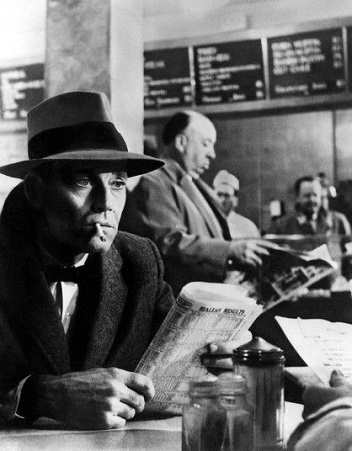
The mistaken identity at the center of The Wrong Man is based in fact. The larger underlying story points for Manny Balestrero, concerning his being investigated as well as taken to trial, also are based in reality. The understated qualities of the film noir storytelling, with the subtext of a string of robberies rather than the murder, make for an interesting combination for this film. While the end result isn’t among my favorite efforts by Alfred Hitchcock, the sum total did work. I grant The Wrong Man as directed by Alfred Hitchcock 3.75-stars on a scale of 1-to-5.
Matt – Saturday, December 4, 2021
